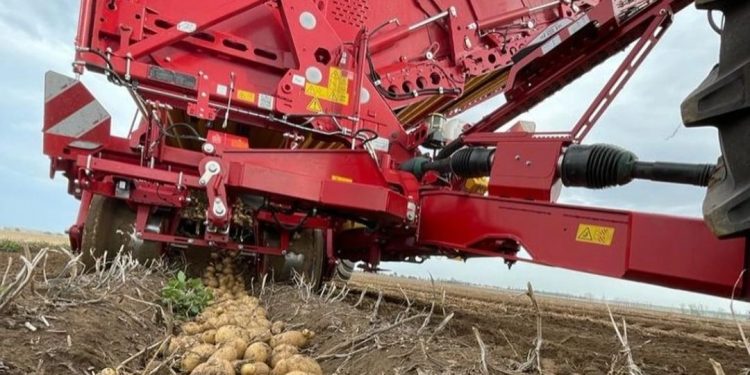Mechanization in agriculture is heralded as a significant leap forward, especially in Kenya, where it has revolutionized the farming landscape. Organizations like Nakuru Tubers are at the forefront, providing mechanization services that allow smallholder farmers to access state-of-the-art farming equipment without the financial burden of ownership. According to recent data from the Food and Agriculture Organization (FAO), mechanization can boost farm productivity by up to 50%, translating to higher incomes for farmers and a more robust agricultural sector overall.
Despite these advancements, the lack of stringent cleaning protocols for agricultural machinery is emerging as a critical threat. Research indicates that improperly cleaned equipment can transfer soilborne diseases such as bacterial wilt, potato cyst nematode, and other pests across fields. These pathogens can persist in the soil, potentially reducing crop yields by up to 30% and necessitating costly soil remediation measures.
To address these challenges, several measures are essential:
- Implementing Stringent Cleaning Protocols: Establishing rigorous standards for cleaning machinery between farm operations is vital. This includes mandatory washing and disinfecting of equipment to eliminate soil residues and pathogens.
- Educating Stakeholders: Both service providers and farmers need to be aware of the risks associated with cross-contamination. Training programs and awareness campaigns can play a crucial role in disseminating this knowledge.
- Cost-effective On-site Solutions: Developing affordable and efficient on-site cleaning solutions can help service providers adhere to hygiene standards without incurring prohibitive costs. Innovations such as portable cleaning units and eco-friendly disinfectants can be game-changers.
The future of mechanization in Kenya’s agricultural sector hinges on balancing the benefits of advanced machinery with the imperative of soil health. By addressing the issue of contaminated equipment head-on, the agricultural community can ensure that mechanization continues to drive progress without compromising the sustainability of farming practices.
In conclusion, mechanization holds immense promise for enhancing agricultural productivity and economic growth in Kenya. However, without proper management, the risks associated with soilborne diseases and pests could negate these benefits. By implementing stringent cleaning protocols, educating stakeholders, and exploring cost-effective solutions, Kenya can achieve a sustainable and prosperous agricultural future.







